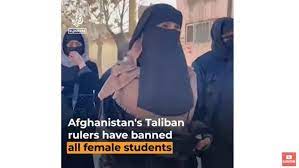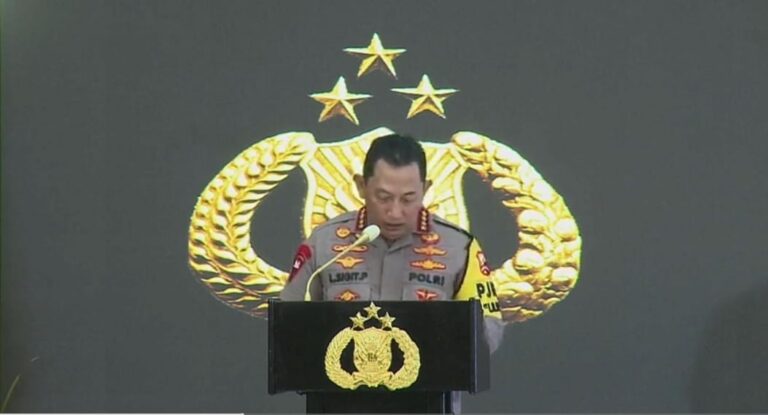
STRATEGIC ASSESSMENT-Jakarta. The Democratic Party on Thursday officially announced Anies Baswedan as its presidential candidate for the 2024 elections. Democratic Party Chair Agus Harimurti Yudhoyono (AHY) said that Anies had gained support from the party’s central board to the regions.

AHY said that his decision to back Anies was based on the provisions of his party’s Upper House, which was led by his father, Susilo Bambang Yudhoyono (SBY). The party also entrusted the responsibility to choose the vice presidential candidate to Anies.
One of Indonesia’s leading presidential candidates, Anies Baswedan was pledged to continue President Jokowi’s flagship $32 billion new capital city if he wins a 2024 election, giving a boost for an ambitious project hit by delays and investor uncertainty. Anies, who is backed by three political parties, said a law had been passed by parliament to build Nusantara, as the new capital is known, so whoever wins the presidency must see it through.
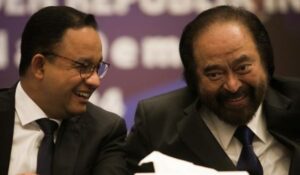
Indonesia’s poll body vowed to forge ahead with organizing next year’s presidential election, defying a surprise ruling by a district court to halt all election processes for more than two years.
The election commission (KPU) said it would appeal Thursday’s ruling by the Central Jakarta district court, which was issued over a lawsuit filed by an obscure party after its application to contest elections was rejected last year. Indonesia’s biggest party and the country’s chief security minister dismissed the ruling and said a district court has no authority to decide election issues.

General Election Commission (KPU) Chair Hasyim Asy’ari said the KPU would make an appeal to the high court. On the other hand, it will continue to carry out the 2024 election stages because of the stages and schedules have been regulated in KPU Regulation No. 3/2022.
After a national coordination meeting, the National Mandate Party (PAN) expressed its support for Ganjar Pranowo and Erick Thohir for president and vice president, respectively, in 2024, while PAN’s partner in the United Indonesia Coalition (KIB) cautioned that any decision would have to be made together.
Doubts remain whether the ruling Indonesian Democratic Party of Struggle (PDI-P), of which Ganjar is a member, will give the nod to the popular Central Java governor. Meanwhile, PDI-P Secretary-General Hasto Kristiyanto insisted that Megawati already had a candidate in mind and would announce her decision
President Jokowi officially opened the National Mandate Party (PAN) National Coordination Meeting on the Elections and a workshop held in Semarang, Central Java.
President Jokowi reminded people that politics should not divide the nation. Therefore, he asked political parties to strengthen their collaboration in all aspects of the nation’s life for the sake of national unity, integrity, and progress.
PAN gave persistent pressure on Central Java Governor Ganjar Pranowo to consider appointing Erick Thohir as a running mate for the 2024 presidential election if he wants support from the party. PAN Chair Zulkifli Hasan on Sunday said, “When Mr. Ganjar and Mr. Erick team up, Indonesia will achieve greatness even more. God willing.”
Zulkifli continued to sing praises for the two men, saying Erick’s recent election as the chairman of the Indonesian Football Association will bring the country major successes in the sport and describing white-haired Ganjar as the true leader who “works hard day and night for his people.”
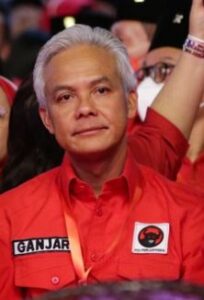
While President Jokowi may have implied his preference for Central Java Governor Ganjar Pranowo, the frontrunner in the upcoming presidential race according to various surveys, the President’s reluctance to explicitly endorse a single candidate left his supporters scrambling to choose who they think is the “best” candidate to replace him.
Political analyst Firman Noor said the split opinions among Jokowi supporters had emerged because his voters were unable to find one candidate who had the same character as the incumbent. “So they choose candidates who they see could be his best successor based on their own judgment,” he told The Jakarta Post recently.

Indonesia’s minister for state-owned enterprises, Erick Thohir, has gotten himself two side jobs on top of his role managing dozens of enterprises and their hundreds of subsidiaries. Recently he chaired the centennial anniversary of the Muslim group Nahdlatul Ulama and won the vote to head the Indonesian Football Association.
Thohir on some occasions has said his extra activities have nothing to do with politics. But his message during a Nahdlatul Ulama anniversary event earlier this month was indicative enough of his interest in the country’s next presidential election, to be held on Feb. 14, 2024.
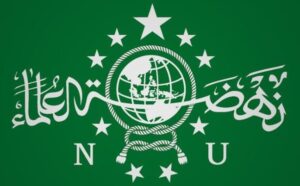
“Allow me today to wear the NU … uniform,” Thohir said in his speech, pointing to the jacket he was wearing. “This is a symbol that if given the opportunity, a Nahdliyin is ready to work for the nation,” he added, using the term for a member of the Nahdlatul Ulama.
Digital freedom of expression will suffer further in the lead-up to the 2024 general elections, one watchdog study on cyberattacks has predicted, as the nation enters a period of enhanced competition to capture the hearts and minds of internet-savvy Indonesian voters.
The watchdog found that digital attacks in Indonesia have more than doubled over the past two years, from 147 discrete instances in 2020 to 302 last year, cementing a trend that had grown from the start of Jokowi’s second term.

One prediction ahead of the 2024 poll is that hackings of social media accounts and electronic devices would remain the most common form of cyberattack, followed by doxing. “Digital attacks tend to increase when there are moments of political significance,” a SAFEnet representative said to journalist.
Indonesia is gearing up for the upcoming general elections in 2024 and the founder of a foreign policy think tank is urging candidates to put climate action on their agenda and to keep a watchful eye on the flow of what he called “coal money.”
National Police’s Security Intelligence Agency Political Director Yuda Agustiawan said identity politics and polarization remain a challenge ahead of the 2024 elections. He said the police had created an index of potential election vulnerability, which refers to security and order violations prior to the elections, with Papua and East Java becoming the most vulnerable in February.
National Cyber and Crypto Agency (BSSN) Director Satryo Suryantoro said the public should be aware of the possibility of cyber-attacks in election year, such as gaining unauthorized access to electronic systems such as networks, servers, databases, and applications in order to destroy, modify, steal, and enter data.
“Climate transition requires bold decisions, hard debate, and painful adjustment,” Dino Patti Djalal, the founder of the Foreign Policy Community of Indonesia (FPCI), told a climate policy forum in Jakarta earlier this week.
The former diplomat said he feared coal money would take the lion’s share of campaign funding. He added, “There will be new coal power plants. The rich are getting a lot richer because coal prices have been going up.”

The Prosperous Justice Party (PKS) officially nominated former Jakarta governor Anies Baswedan as its presidential candidate in the 2024 elections. PKS President Ahmad Syaikhu made the announcement directly as a result of the decision of the party’s central office’s Eighth PKS Shura Council Deliberation. According to him, Anies is a leader with a religious nationalist personality, as determined by the previous deliberation criteria.
During his visit to an Islamic boarding school in Medan, North Sumatra, Political, Legal, and Security Affairs Coordinating Minister Mahfud M.D. advised all parties, particularly religious leaders, school leaders, and the extended family of Islamic boarding schools to refrain from campaigning in mosques ahead of the 2024 elections in order to avoid any conflicts of interest.
He later stressed that every member of society has the right to make their own political choices based on their views without having to attend political based gatherings in mosque settings.
Center for Political Communication Studies (CPCS) Executive Director Tri Okta said that public satisfaction with the Jokowi-Ma’ruf Amin administration has remained high over the past year.
According to the CPCS survey results, up to 77.8 percent of the public is satisfied with Jokowi’s leadership. Tri said the high level of public satisfaction was inextricably linked to the government’s success in maintaining economic and sociopolitical conditions in the midst of a situation nearing the end of the COVID-19 pandemic and global turmoil due to the Ukraine war.
Despite his popularity in the polls, West Java governor Ridwan Kamil said he will support the potential candidacy of the country’s coordinating minister for economic affairs, Airlangga Hartarto in Indonesia’s presidential election next year. In January, Mr Kamil made headlines by joining Indonesia’s oldest running political party, Golkar, which is chaired by Mr Hartarto. “The party has decided that Airlangga shall run in the presidential election. It is fixed. Therefore, I, as a new member, support, pray for and look for ways to help him in any way I can,” Mr Kamil said.
National Defense Institute (Lemhannas) Governor Andi Widjajanto on Wednesday said the institute observed a global trend of democratic regression, including in Indonesia, based on indices from several research institutions such as Freedom House, Freedom in the World (2022), and LAB 45 (2022).
Andi said he believed that disinformation and hate speech ahead of the 2024 elections contributed to the regression of democracy in Indonesia.
According to a Kompas polling in January, Ganjar Pranowo scored the highest electability as a presidential candidate, with 25.3 percent of respondents saying they would vote for him. Prabowo Subianto followed with 18.1 percent and Anies Baswedan 13.1 percent.
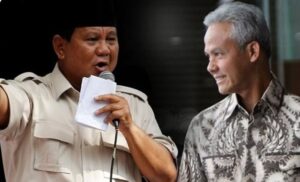
The results of the Kompas Research and Development survey for January 2023 show that the Indonesian Democratic Party of Struggle (PDI-P) is back in the top position with 22.9 percent electability, up 1.8 percent compared to the October 2022 survey. Despite declining electability, the Gerindra Party holds second place with a 1.9 decline to 14.3 percent. The Democratic and Golkar Party electability also changed.
PDI-P Secretary General Hasto Kristiyanto attributed his party’s rising electability to all cadres’ community outreach. “It’s not like the others, who are discussing the presidential election and their more elitist maneuvers,” he said.
Four new parties will compete in the 2024 elections. One of them is the revived Labour Party (Partai Buruh), which was established by more than 50 labour unions in 2021.
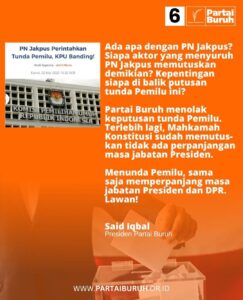
The core initiator of the party was the Federation of Indonesian Metal Worker Unions (FSPMI), which has 300,000 members. To expand the social base of the party, it has aligned itself with other workers’ groups and social movements, such as those for farmers, informal sector workers, domestic workers, migrant workers, temporary or contract workers, online transportation workers, and the urban poor.
According to Statistics Indonesia, there are more than 135 million workers in Indonesia, 60% of whom work in the informal sector (equivalent to about 80 million people). The Labour Party is hoping it can draw on this broad base to attract the 7 million votes needed to pass the 4% legislative threshold.
President Jokowi called on presidential hopefuls to maintain the country’s political stability ahead of the 2024 general election. “Stability is important as we’re facing the risk of a global crisis, whose effects are hard to predict and calculate,” the President said in his speech at the 50th anniversary celebration of the United Development Party (PPP) in Tangerang, Banten.
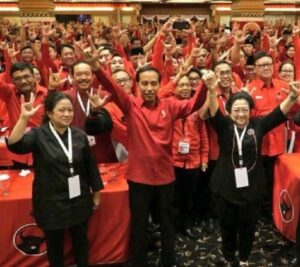
The event was attended by leaders of major political parties, including the leading opposition party, the Democratic Party (Democrats), and potential presidential or vice-presidential candidates that will contest the 2024 elections.
A survey conducted by Kompas Research and Development on Jan. 25 to Feb. 4 show that the level of public satisfaction with the President Jokowi and Vice President Ma’ruf Amin administration has increased to 69.3 percent. However, this survey found that seven of the 20 surveyed indicators had satisfaction levels that were less than 50 percent.

According to the Monday edition of Kompas, three indicators in the law enforcement sector have satisfaction rates below 50 percent: eradicating bribery and buying and selling cases (37.9 percent); eradicating corruption, coalitions, and nepotism (48 percent); and ensuring equal treatment by law enforcement agencies for all citizens (49.3 percent). Even though it is still lower than 50 percent, satisfaction with these indicators has increased since the previous survey in October 2022.


